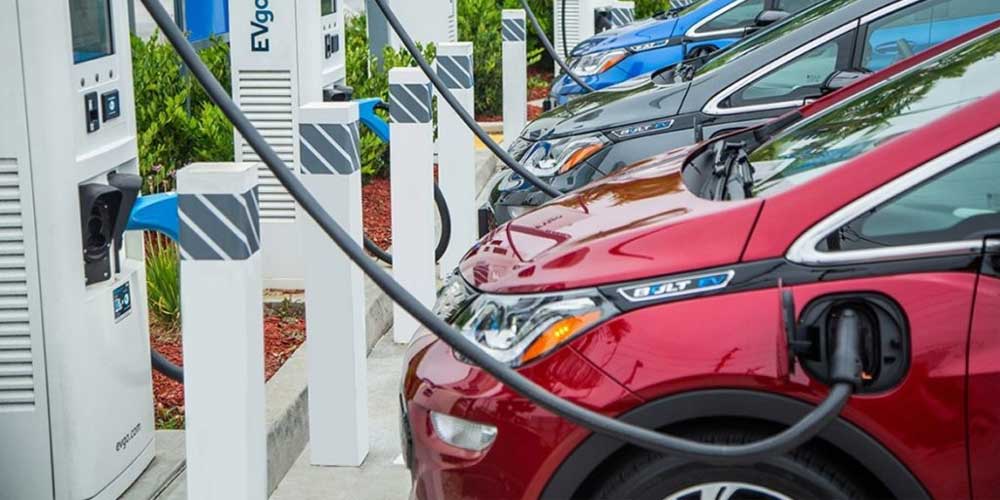
New Jersey Attorney General Matthew J. Platkin today joined a coalition of 11 attorneys general in suing the federal government to challenge the unprecedented and unlawful use of the Congressional Review Act (CRA) to disapprove state Advanced Clean Cars II (ACCII), Omnibus, and Advanced Clean Trucks (ACT) standards, which California had issued under the Clean Air Act and New Jersey subsequently adopted.
The lawsuit challenges the federal government’s decision to break basic procedural norms in order to shut down state clean energy policies. Waivers under the Clean Air Act, which allows for California and other States to adopt their own clear air rules, have never been subject to the CRA nor have any other agency orders that adjudicate requests for permission —such as oil and gas leases or mining permits. The actions taken here contradict the nonpartisan Government Accountability Office and Senate Parliamentarian, who both determined that the CRA’s process to disapprove federal regulations does not apply to these waivers.
“The federal government is breaking basic procedural rules in a misguided effort to pollute our air and hurt the public health of our residents,” said Attorney General Platkin. “Revoking state vehicle emissions standards is illegal, and it is yet another way that the Trump Administration is violating the law to target States it disfavors. We will not stand by as the health of our residents is targeted by this Administration and its enablers in Congress. We will see them in court.”
“New Jersey experiences a high level of air pollution from vehicle exhaust, and the health and wellbeing of our children and families suffers as a result,” said State Commissioner of Environmental Protection Shawn M. LaTourette. “To reduce this harmful pollution, New Jersey has long relied upon the state’s rights provisions of the federal Clean Air Act, which have enabled us to better protect the health of New Jerseyans by setting stronger vehicle pollution standards than the federal government. While recent federal actions seek to undermine these important state rights, the New Jersey Department of Environmental Protection is joining with other states around the nation to protect the rights of all of our residents to breathe clean air.”
Motor vehicle emissions contribute to the formation of smog, as well as fine particle pollution and toxic air pollution, all of which are linked to premature death, respiratory illness, cardiovascular problems, and cancer, among other serious health impacts. Transportation is also the leading source of greenhouse gas emissions in the country, and cars and trucks account for 80% of those transportation emissions.
The Clean Air Act requires the EPA to set federal emission standards for air pollutants from new motor vehicles or new motor vehicle engines that cause or contribute to air pollution that endangers public health or welfare. The Clean Air Act allows California to adopt more stringent emission requirements independent from EPA’s regulations, because California had vehicle emissions standards before the passage of the federal Clean Air Act. California can enforce these standards with an EPA preemption waiver.
Once EPA grants California a waiver, other States may adopt California’s standards and do not need a waiver of their own. Since 2023, the EPA granted California three waivers, allowing it to enforce the ACC II, Omnibus and ACT standards in California. Historically, EPA, under both Democratic and Republican administrations, has granted California more than 75 preemption waivers for updates to the State’s new motor vehicle emissions control program. As Congress intended, these waivers have allowed California, and those states that adopted California’s standards, to improve on their vehicle emissions programs.
Under the state rules at issue (known as ACCII and ACT), which New Jersey adopted in 2023 and 2021, automakers must continue to sell an increasing number of zero-emission vehicles—as they have been for decades. By model year 2035, 80% of the passenger vehicles sold in New Jersey must be zero-emission, while the remaining 20% may be plug-in hybrids. The Advanced Clean Truck regulations aim to accelerate the widespread adoption of zero emission vehicles in the medium and heavy-duty truck sector, and are critical to New Jersey’s efforts to meet air quality standards and protect public health. The Omnibus regulation requires internal combustion heavy-duty trucks sold in New Jersey to meet strict standards for oxides of nitrogen (NOx) emissions, which are major contributors to smog formation.
The Trump Administration EPA transmitted these California waivers to Congress in an attempt to invoke the CRA, even though EPA’s under both Republican and Democratic administrations – and the nonpartisan Government Accountability Office and Senate Parliamentarian – all agree that these waiver decisions are not “rules” that can be reviewed under the CRA. But despite this longstanding consensus, the Republican-controlled U.S. House of Representatives and the Senate illegally used the CRA to target California’s Clean Air Act waivers.
The complaint filed today alleges that the attempt to invalidate California’s waivers violated constitutional principles of federalism and separation of powers, the Take Care Clause, and multiple federal statutes including the Congressional Review Act and Administrative Procedure Act. The complaint asks the court to declare the resolutions to be unlawful and to require the Administration to implement the Clean Air Act consistent with the granted waivers.
Attorney General Platkin joins California Attorney General Rob Bonta and the attorneys general of Delaware, Colorado, Massachusetts, New Mexico, New York, Oregon, Rhode Island, Vermont, and Washington in filing the lawsuit.
A copy of the complaint is available here.
